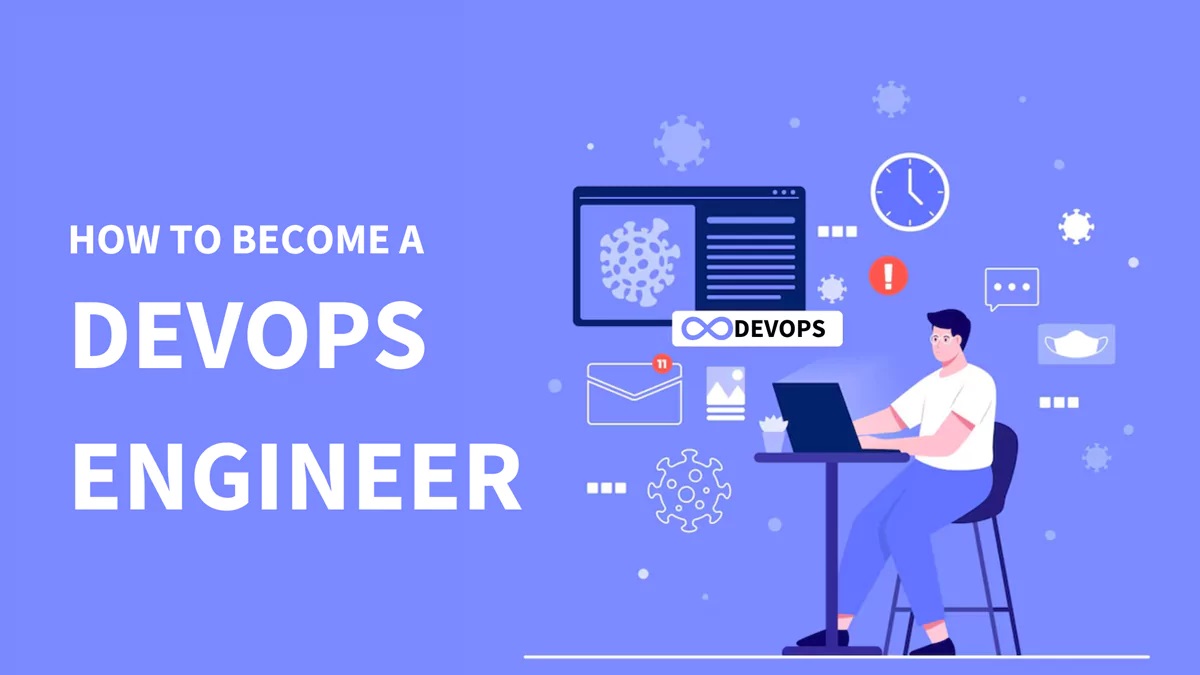The Complete Roadmap to Becoming a DevOps Engineer
 rose rusell
rose rusell
Introduction
The role of a DevOps engineer is becoming increasingly vital in today’s tech-driven world. If you're looking to transition into this dynamic field, this guide will provide you with a clear roadmap to become a DevOps engineer, highlighting the essential skills and tools you'll need.
Step 1: Build a Strong Foundation in Software Development
To start your journey on how to become a DevOps engineer, you must first establish a strong foundation in software development. Learn key programming languages such as Python, Java, or Ruby, and understand the Software Development Life Cycle (SDLC). This knowledge is crucial as it provides the background necessary to grasp how software is built, tested, and deployed.
Step 2: Master Linux and System Administration
A significant portion of DevOps work involves managing servers and systems, making proficiency in Linux and system administration essential. Learn Linux commands and shell scripting to manage your servers effectively. This expertise will be instrumental in handling the environments where your applications will run.
Step 3: Learn Configuration Management and Automation Tools
Familiarize yourself with configuration management and automation tools such as Ansible, Puppet, and Chef. These tools help automate repetitive tasks, manage infrastructure as code, and ensure consistency across various environments. Mastering these tools is a key step on the roadmap to become a DevOps engineer.
Step 4: Get Hands-On with Continuous Integration/Continuous Deployment (CI/CD)
Understanding CI/CD pipelines is critical for any DevOps role. Tools like Jenkins, Travis CI, and GitLab CI are integral to this process. By setting up CI/CD pipelines, you ensure that your code is continuously tested and deployed, leading to faster and more reliable software releases.
Step 5: Understand Containerization and Orchestration
Learn Docker for containerization, which allows you to package applications and their dependencies into containers. Additionally, mastering Kubernetes for container orchestration will enable you to manage, scale, and deploy these containerized applications efficiently. This skill set is vital in today's DevOps environments.
Step 6: Gain Experience with Cloud Platforms
Cloud platforms such as AWS, Azure, and Google Cloud Platform (GCP) are central to modern DevOps practices. Gaining experience with these platforms will help you understand how to deploy and manage applications in the cloud. This is an essential component of what you should learn to become a DevOps engineer.
Step 7: Develop Monitoring and Logging Skills
Monitoring and logging are critical for maintaining the health and performance of your applications. Implement monitoring solutions like Prometheus and Grafana, and use logging tools such as the ELK Stack (Elasticsearch, Logstash, Kibana) to collect, analyze, and visualize log data. These skills will help you troubleshoot and optimize your applications effectively.
Step 8: Embrace the DevOps Mindset
Finally, adopting a DevOps mindset is crucial. This involves fostering collaboration between development and operations teams, focusing on automation, continuous improvement, and scalability. Promoting a culture of shared responsibility and transparency will drive the success of your DevOps practices.
In conclusion, becoming a DevOps engineer requires a blend of software development skills, system administration knowledge, and proficiency with a variety of tools and platforms. By following this comprehensive roadmap to become a DevOps engineer, you will be well-equipped to succeed in this dynamic and rewarding field. Start your journey today and unlock your potential in the world of DevOps!
Subscribe to my newsletter
Read articles from rose rusell directly inside your inbox. Subscribe to the newsletter, and don't miss out.
Written by

rose rusell
rose rusell
Hello, my name is Rose. I have completed my engineering degree from USA University. Currently, I am working as an Associate. Originally from the USA, I bring a diverse background and a unique perspective to my work. My engineering education has equipped me with strong analytical and problem-solving skills.